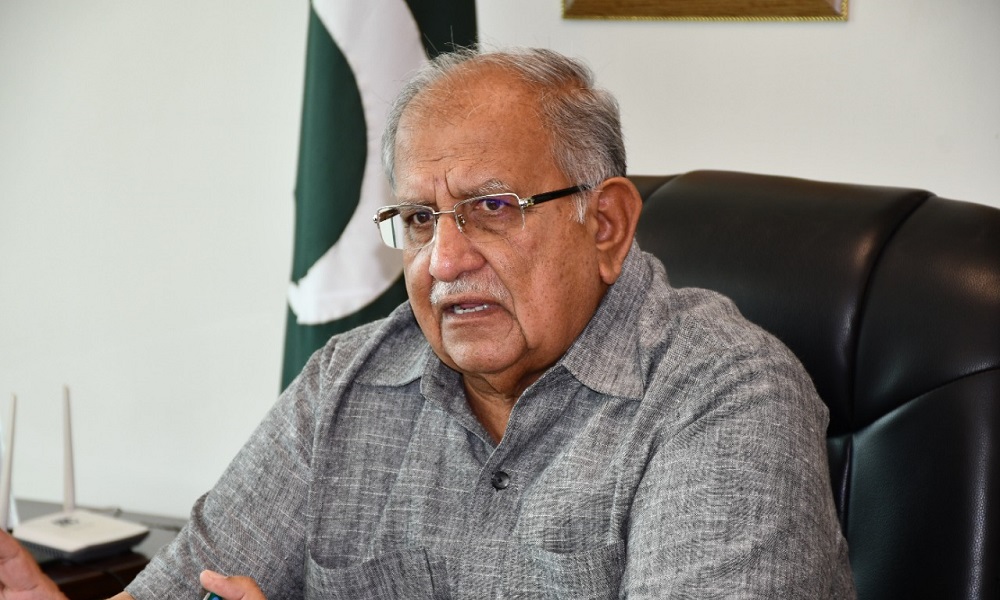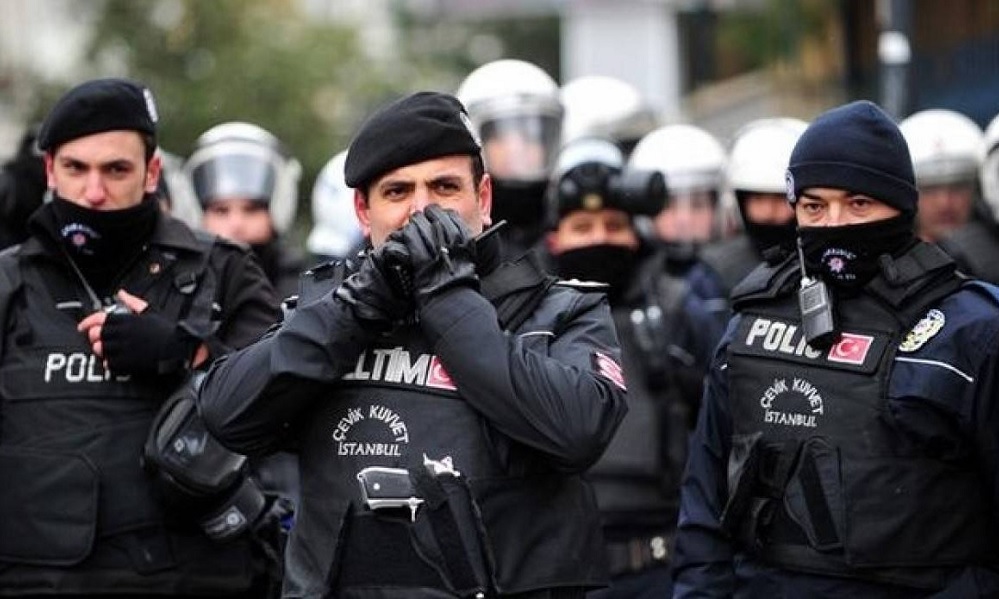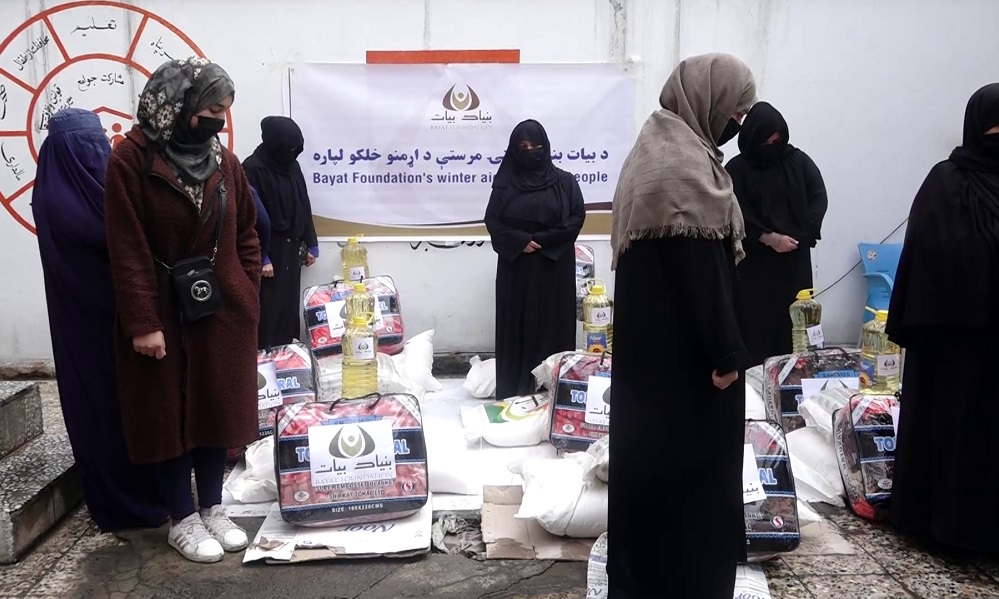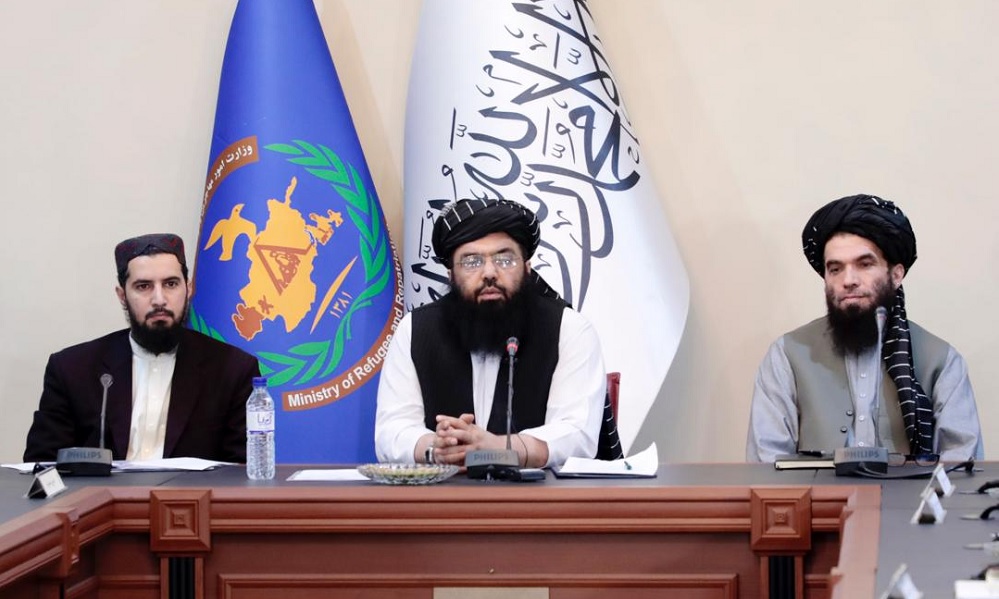Latest News
Pakistan’s human rights minister does not see Afghan involvement in cross border attacks

Pakistan’s Human Rights Minister Riaz Pirzada has said that he does not see the Islamic Emirate of Afghanistan’s (IEA) involvement in recent terror incidents across Pakistan, adding that there are misunderstandings between the two countries.
The minister’s remarks come as a stark contradiction to recent statements issued by the government and the army who have repeatedly raised concerns over the use of Afghan soil by militants for cross-border terrorism.
Recently, an attack on a military installation in Balochistan’s Zhob Cantt, and another attack on security forces in Balochistan’s Sui resulted in the deaths of 12 soldiers. Pakistani government claimed that the perpetrators of the Zhob attack were Afghan nationals.
Last week, Prime Minister Shehbaz Sharif had also urged the Afghan government to take “concrete measures” towards denying the use of its soil for terrorism.
In an interview with Dawn News, Pakistan’s human rights minister recalled the Afghan authorities’ statement forbidding attacks in Pakistan.
“A few things are taking place beyond [their knowledge] but as far as the Taliban (IEA) … even today, their defence minister’s statement has come that they would not allow any person to commit any act against Pakistan and that this is not jihad.”
When asked about the increase in the number of Afghan nationals in Swat and Khyber Pakhtunkhwa, the minister said they were allowed into the country by the previous PTI government.
“They were the ones who were brought by your own people, who gave permission during the previous tenure to bring them in the [mainstream],” he said.
When asked if he thought there were “misunderstandings” between Afghanistan and Pakistan, Pirzada concurred. He went on to say that in his opinion, the Afghan leadership was being “quite honest with Iran, Saudi Arabia, China and Pakistan”.
The minister further said the blood of Pakistanis and Afghans was “the same”, highlighting the socio-cultural as well as linguistic ties between the two countries.
“So, I do not think that Afghanistan would be this disloyal to Pakistan. I do not accept this,” he said.
Latest News
Turkish intelligence captures a Daesh member near the Durand Line

Turkish intelligence agents have captured a senior member of Daesh near the Durand Line, reportedly preventing planned suicide attacks in Turkey and other countries, according to Turkey’s state-run Anadolu Agency on Monday.
The suspect, identified as Mehmet Goren, is a Turkish citizen. He was apprehended during a covert operation and transferred to Turkey. Details on the timing of the operation or the involvement of Afghan and Pakistani authorities were not disclosed.
According to the report, Goren had risen through the ranks of Daesh and was allegedly tasked with carrying out suicide bombings in Turkey, Pakistan, Afghanistan, and Europe.
Daesh has a history of deadly attacks in Turkey, including the January 1, 2017 shooting at an Istanbul nightclub that killed 39 people.
Anadolu Agency reported that Goren’s arrest also provided intelligence on the group’s recruitment strategies and planned activities.
Latest News
Dozens of needy families in Kabul receive winter aid from Bayat Foundation

Dozens of needy families in Kabul’s fifth district have received essential winter assistance from the Bayat Foundation, as part of ongoing efforts to ease hardship during the cold season and worsening economic conditions.
According to foundation officials, the aid package includes staple food items such as flour, rice, and cooking oil, along with warm blankets to help families cope with freezing temperatures. Haji Mohammad Ismail, Deputy Head of Bayat Foundation, said the distribution began in Kabul and will soon be expanded to other provinces.
“Our assistance includes flour, rice, cooking oil, and blankets,” Ismail said. “Today, we started distributing these items in Kabul’s fifth district, and God willing, the aid will reach other provinces in the near future.”
Afghanistan continues to face widespread poverty, unemployment, and food insecurity, with many families struggling to meet basic needs, particularly during winter when access to work and heating becomes more difficult.Humanitarian organizations and charitable foundations have stepped up relief efforts to support those most affected.
Beneficiaries welcomed the assistance, describing it as a lifeline. “May God bless you for helping the poor. We had nothing and no work,” said one recipient. Another added, “Thank you for your help. Our flour was almost finished.”
Bayat Foundation officials stressed that winter aid distributions will continue in Kabul and other provinces in the coming days, as part of their broader commitment to supporting needy families across the country.
Latest News
Nearly seven million Afghan refugees return home since Islamic Emirate’s takeover

Since the Islamic Emirate came to power, approximately 6.8 million Afghans have returned home, either voluntarily or forcibly, from neighboring countries and other nations, according to the Minister of Refugees and Repatriation.
Mawlawi Abdul Kabir, speaking at a meeting on finalizing a draft plan for a permanent migration solution in Afghanistan, added that 1.3 million Afghans have been internally displaced due to natural disasters during the same period.
With winter approaching, widespread poverty and severe cold are threatening thousands of lives. Meanwhile, the forced expulsion of Afghan migrants from neighboring countries, particularly Iran and Pakistan, continues.
The Islamic Emirate has repeatedly urged neighboring states to allow migrants to return voluntarily. According to UNHCR, over two million Afghans have returned from Iran and Pakistan since the start of 2025.
-

 Latest News3 days ago
Latest News3 days agoAfghan border forces prevent illegal entry of hundreds into Iran
-

 Latest News3 days ago
Latest News3 days agoPakistan summons Afghan diplomat over deadly attack in North Waziristan
-

 Latest News1 day ago
Latest News1 day agoAfghanistan signs 30-year deal for marble mining in Daikundi
-

 Latest News2 days ago
Latest News2 days agoAfghan health minister calls for medical cooperation between Kabul and New Delhi
-

 Latest News3 days ago
Latest News3 days agoJapan allocates nearly $20 million in humanitarian aid for Afghanistan
-

 Latest News3 days ago
Latest News3 days agoKarzai urges reopening of girls’ schools and universities for Afghanistan’s bright future
-

 Health5 days ago
Health5 days agoAfghanistan seeks India’s support in standardizing traditional medicine
-

 World5 days ago
World5 days agoUS readies new Russia sanctions if Putin rejects peace deal, Bloomberg News reports
























